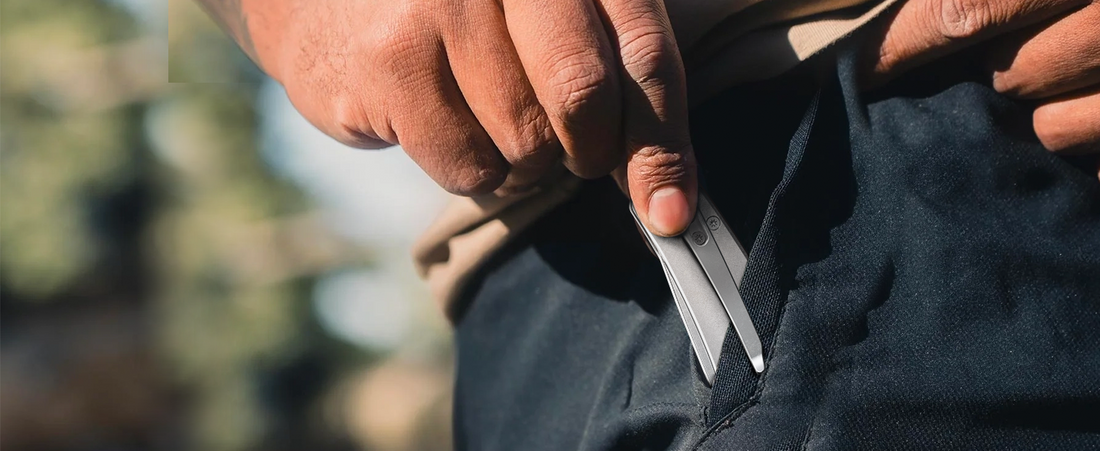How to Legally Carry a Pocket Knife: Laws by State & Country Overview

Carrying a pocket knife can be both practical and symbolic—it’s a tool for outdoor enthusiasts, a daily utility for workers, and sometimes even a cultural tradition. Yet, laws governing pocket knives vary widely, and what’s legal in one state or country may be illegal in another. If you’ve ever wondered “Is a pocket knife legal in my state or country?” you’re not alone. This guide breaks down pocket knife laws by state in the U.S., compares them with selected countries abroad, and provides practical advice to help you stay on the right side of the law.
Why Pocket Knife Laws Matter
Pocket knives often serve harmless purposes—opening packages, fishing, camping, or general utility. However, because knives can also be classified as weapons, governments regulate their size, blade type, and how (or where) they can be carried. Failing to follow these laws can lead to fines, confiscation, or even criminal charges.

Pocket Knife Laws in the United States (By State)
The United States has no single federal law regulating pocket knives for everyday carry. Instead, laws are determined at the state and sometimes city level. Below is a state-by-state overview of key restrictions:
General Legal Themes Across States
Blade Length Limits: Many states restrict blades over 3–4 inches.
Automatic/Assisted Opening Knives: Switchblades and spring-assisted knives are restricted in several states.
Concealed vs. Open Carry: Some states allow pocket knives if carried openly, but not concealed.
Sensitive Locations: Schools, courthouses, government buildings, and airports are universally restricted.
State Highlights
California: Legal to carry folding knives concealed if folded, but blade length over 2.5 inches prohibited in public buildings.
Texas: Very permissive—allows knives with blades up to 5.5 inches; restrictions apply in schools and polling places.
New York: Complicated—gravity knives were recently legalized, but locking knives may be scrutinized; avoid carrying in NYC where local laws are stricter.
Florida: Legal if blade length is under 4 inches for “common pocket knives”; larger blades may require lawful purpose.
Illinois: Pocket knives legal under 3 inches; automatic knives legalized in 2023 for those with a FOID card.
Massachusetts: Folding knives are generally legal; however, “dangerous knives” like switchblades and double-edged blades are restricted.
Washington: Prohibits switchblades and certain spring-assisted knives; folding knives with common uses are allowed.

Pocket Knife Laws in Selected Countries
While the U.S. has state-by-state variations, many countries apply national-level laws:
Canada: Folding knives are generally legal, but carrying knives for self-defense is prohibited. Switchblades and butterfly knives are banned.
United Kingdom: Strict—illegal to carry any knife in public without “good reason,” except folding knives with blades under 3 inches (non-locking).
Germany: Legal to carry folding knives with blades under 4.7 inches, but locking and one-handed opening knives are restricted unless you have legitimate purpose.
Australia: Very restrictive—knives cannot be carried without a lawful excuse; carrying for utility in camping/fishing may be acceptable.
Japan: Pocket knives with blades longer than 2.4 inches (6 cm) require special permission; smaller knives are permitted for utility.


Practical Advice for Knife Owners
Knowing the law is just the first step. Here are practical tips to help you carry your pocket knife legally and responsibly:
Check Local Regulations: City and county laws can be stricter than state or national laws. Always double-check before traveling.
Mind the Blade Length: Stick to blades under 3 inches when unsure; this length is widely tolerated.
Avoid Restricted Locations: Never carry knives into airports, schools, or government buildings.
Concealed vs. Open Carry: If your state prohibits concealed carry of knives, keep it visible on a belt clip rather than hidden in your pocket.
Use for Utility, Not Defense: Carrying a knife for self-defense is often illegal, even if the knife itself is legal to own.
Travel Considerations: When traveling internationally, pack knives in checked luggage and declare if necessary.
Stay Updated: Knife laws change—subscribe to legal resources or advocacy groups like the American Knife & Tool Institute (AKTI).
Summary
Pocket knives are versatile tools, but their legality depends on where and how you carry them. In the U.S., each state sets its own rules, while other countries often impose strict nationwide laws. The best way to stay safe—and legal—is to research local laws, respect blade length limits, and carry your knife strictly for utility purposes.
By understanding the rules and using common sense, you can enjoy your pocket knife as the practical tool it was meant to be—without legal trouble.





